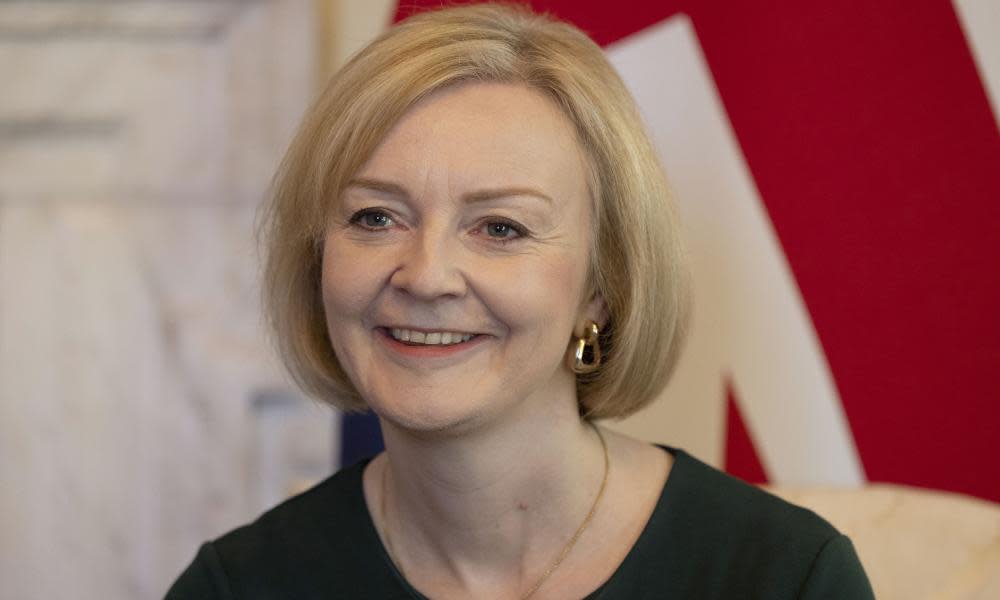‘Where’ve you been?’: Rima Ahmed on challenging Liz Truss on local radio

“Where’ve you been?” The Yorkshire-accented question by the BBC Radio Leeds breakfast show host Rima Ahmed to Liz Truss dominated national news and social media after a round of disastrous local radio interviews for the prime minister this week.
This unexpected exposure came in part because, like Truss, some people were taken by surprise that local radio presenters were capable of handing out such a grilling.
For Ahmed, it is easy to hold a politician to account when you spend every day talking to the people affected by their policies.
Before speaking to Truss on Thursday, Ahmed read out a comment from Sophia in York, after asking listeners what they would like to ask the prime minister.
Related: ‘A reverse Robin Hood’: key exchanges from Liz Truss’s radio interviews
It read: “I would ask the prime minister, when will I ever feel hope again? I feel I will never own a home, I will never feel comfortable, I feel I can’t get a secure job. I’m a British army veteran and I’m no longer proud to be British.”
It is one of the many comments Ahmed was affected by.
Speaking the morning after the interview, Ahmed said: “When you’re moments from speaking to the prime minister, you can’t get emotional. But it’s hard not to get emotional.
“It’s embarrassing to say you can’t afford to heat your house, even though everyone’s in the same boat. But for some reason they feel comfortable sharing it with us.
“The really sad thing is that sometimes I can tell they have no one else to talk to. They often get in touch anonymously or under a pseudonym that they use for the radio.
“If they were my family members, I’d find it devastating.”
Listener engagement is “gold dust” here, she says – the number of tweets, texts, calls and WhatsApp messages popping up on the screen are a key measure of success for Ahmed and her producers, Andy Evans, Julie Langford and Pete Allison.
On Friday, alongside a discussion about protests in Iran, there is a conversation about whether Kwasi Kwarteng’s mini-budget is anti-feminist, an interview with a politics lecturer about Truss’s popularity (or lack of) and a game where listeners guess a song title based on sound effects – called “Songomatopoea” and accompanied by an equally ridiculous jingle.
This is public service broadcasting for a broad demographic – a fine balance between hard news, especially based around West Yorkshire, and jollity.
But now, more often than not, this news means the cost of living crisis.
Evans says it is a subject they have been asking listeners more about and the ability to message a radio station means people are more frank than they would be having to say the words out loud.
“It’s easier to write it down on an email than it is to tell somebody about it,” he says.
He is the first to read the messages and emails and, when listeners call into the Radio Leeds breakfast show, he is the person on the other end of the line. But it can be difficult knowing how to respond.
Evans says: “You’re treading a line because you want to give people advice but not go down the route of ‘oh it’s OK, just put a jumper on’. This is a bigger issue than that.”
The team are also aware that most people in a difficult position will not contact them but they do listen to the output.
“Not everyone who is in dire straits feels comfortable calling in to say that,” he adds.
Related: Disastrous Liz Truss interviews show BBC local radio still packs a punch
The BBC charter requires an hour of talk radio with no music every morning, giving Ahmed a lot of time to get to know her listeners.
“People listen for companionship when they listen to local radio,” she says.
“When they send a text, it’s like saying, ‘I’m here and I want to be seen’. There’s something powerful about that.”

 Yahoo Movies
Yahoo Movies 
